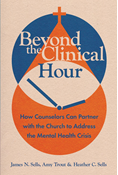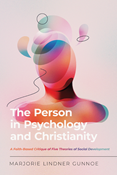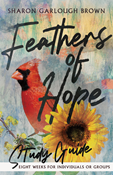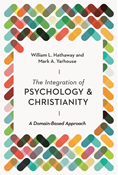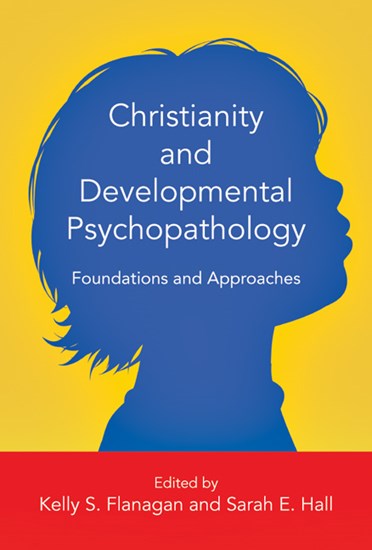
|
Christianity and Developmental Psychopathology
casebound
|
- Length: 480 pages
- Dimensions: 6 × 9 in
- Published: March 19, 2014
- Imprint: IVP Academic
- Item Code: 2855
- ISBN: 9780830828555
-
Other Retailers:
Amazon*
*affiliate partner
Midwest Publishing Association Award of Excellence
Since its origin in the early 1980s, the field of developmental psychopathology has become a highly influential framework for approaching the clinical treatment of children. Until now there has been no effort to integrate this framework with a Christian understanding of psychopathology.
The essays in this volume break new ground by providing Christian mental health professionals with a theoretically and empirically sound basis for working with children, adolescents and families. Throughout the book, the authors explore three integrative themes, looking at children as divine gifts, as persons and as agents in their own development.
Given the deep biblical and theological interest in children and the "least of these," there is great potential in this integrative work for mutual enrichment. Christian insights help to prevent the scientific study of the developmental process from being reductive. At the same time, research into the biological, sociocultural and psychological dimensions of human development can serve to inform and guide Christian practices of care and hospitality toward children and families. Christianity and Developmental Psychopathology makes an important contribution to a conversation that is still in its infancy.
Christian Association for Psychological Studies (CAPS) Books explore how Christianity relates to mental health and behavioral sciences including psychology, counseling, social work, and marriage and family therapy in order to equip Christian clinicians to support the well-being of their clients.
"What I really appreciate about this book—in addition to its excellent coverage of a range of issues in child psychology—is its unique incorporation of fresh theological views about children's value and voice, helping us see children anew in all their complexity and wonder. Children themselves will be among its many beneficiaries!"
"Kelly S. Flanagan and Sarah E. Hall, in Christianity and Developmental Psychopathology, have pulled together an excellent resource for Christians who work with troubled children. The authors of the chapters are authoritative experts in their respective areas, and this book will more than repay the reading. If you want to understand troubled children and how to help them, this is required reading."
"This book is among the greatest achievements in the integration literature in recent decades. Not only do the editors and authors address the importance of a developmental look at psychopathology, they do so in a way that honors the best of the integration tradition. Drs. Flanagan and Hall frame the conversation in a sophisticated theological context, and each chapter contributor offers religious and spiritual implications as well as practical suggestions."
"The editors should be commended for developing an edited work that generally reads like a single-authored book. . . . This book is highly appropriate to use as a textbook in graduate courses in either child psychology or child psychopathology in integrative clinical programs. It is also a must read for any practitioner working with children or adolescents, while many adult clinicians would find it useful, by increasing their understanding of normal and abnormal developmental trajectories. In sum, Christianity and Developmental Psychopathology is a substantial contribution to the Christian integration literature, by successfully providing 'a more nuanced view of children and families' and 'a more integrated approach to treatment' (p. 12)."
CONTENTS
Introduction
1 Overview of Developmental Psychopathology and Integrative Themes
Kelly S. Flanagan and Sarah E. Hall
Section I: Intrapersonal Influences
2 Temperament
Amy Mezulis, Kaitlin A. Harding and Melissa R. Hudson
3 Emotion Regulation
Sarah E. Hall
Section II: Interpersonal Influences
4 The Parent-Child Relationship
Winston Seegobin
5 The Marital and Parental Dyad
Mari L. Clements, Tara A. Guarino and Laura C. Bartos
6 Peer Relationships
Kelly S. Flanagan, Sarah L. Kelly and Amy Peeler
Section III: Treatment and Prevention
7 Prevention and the Promotion of Thriving
Pamela Ebstyne King and Casey Erin Clardy
8 Intervention: Applying a Developmental Psychopathology Framework
Sally S. Canning, Kelly S. Flanagan, Jennifer Hailey and Emely de la O
Section IV: Application from Theoretical Orientations
9 Psychodynamic and Attachment-Based Approaches to Treatment
Jana D. Pressley and Kristin K. Vanden Hoek
10 Behavioral Approaches to Treatment
Amanda M. Blackburn, Christine Weisgerber and Michelle Shelley
11 Cognitive-Behavioral Approaches to Treatment
Donald F. Walker, Katherine Partridge, Anastasia Whitesell, Brittany Montes and Sarah E. Hall
12 Family Systems Approaches to Treatment
Sandra Y. Rueger and David van Dyke
Appendix A: Case Formulation Worksheet
Appendix B: Developmental Trajectory Map
Appendix C: Select Examples of Evidence-Based Treatments
References
Subject Index




